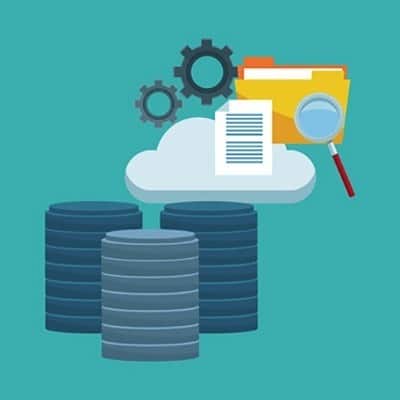The late American author Kurt Vonnegut once wrote, “New knowledge is the most valuable commodity on earth. The more truth we have to work with, the richer we become.” Written in the 20th century, it has been put in practice by 21st century businesses. As the Internet has grown, the amount of companies expanded, and the amount of data that those companies collect has grown exponentially, especially now that there is a market for such data.
The password isn’t nearly as secure as it used to be. Hackers have begun to take advantage of extremely powerful solutions designed to brute force their way into accounts by using software to rapidly guessing thousands of passwords per second, making it extraordinarily difficult to prepare yourself for them. What’s the best way to guarantee that passwords aren’t going to be the downfall of your company? A great start is by taking a close look at password best practices and two-factor authentication.
Data security isn’t a matter to be taken lightly, as too many businesses have found out the hard way. Unfortunately, there are far too many simple ways to correct common security issues – enough that it’s foolish not to do so. We’ll review a few ways to fix security issues, after discussing one of, if not the, most egregious security failings in modern history.
Despite what detractors say, regulations are in place for good reason. They typically protect individuals from organizational malfeasance. Many of these regulations are actual laws passed by a governing body and cover the entire spectrum of the issue, not just the data involved. The ones that have data protection regulations written into them mostly deal with the handling and protection of sensitive information. For organizations that work in industries covered by these regulations there are very visible costs that go into compliance. Today, we look at the costs incurred by these organizations as a result of these regulations, and how to ascertain how they affect your business.
There is no question that a small business can benefit from technology, as has been proven time and time again. However, an issue can arise if a business bites off more than it can chew, so to speak, and ultimately creates a spike in costs. A responsible business owner will resist this temptation and prioritize the solutions they need over the ones they want – building profitability and generating capital needed to make other improvements. In this blog, we’ll examine some of the implementations that can deliver a good return on investment to a small business.
Profitability is less the measure of being able to turn a profit, and more the measure of how much profit you can make. For the successful small business, the integration of technology can dictate what kind of annual margins you are looking at. For the new company, however, it can be something even more critical: the difference between setting a course for success, or wallowing in failure. Today we analyze the cost difference between hosting your IT in-house, or choosing to host it in the cloud.
The cloud has proven to be an extremely useful tool for the modern business. Not only does it provide anywhere-anytime access to applications, processing, storage, et al; it also delivers those products as a service, allowing you to budget for recurring costs rather than major upfront ones. This provides your organization with functional, supported, and secure computing environments that eliminate a lot of the support costs that traditional computing environments require. It sounds like a perfect scenario for small and large businesses alike, but things aren’t always what they seem, as a lot of cloud users have found that they have incurred several hidden costs by using cloud platforms. Today, we take a look at these hidden costs.
How much does your business rely on technology to keep your organization running forward? As business technology becomes more complex, it’s becoming increasingly popular for organizations to have their own internal IT departments to manage and maintain it. Yet, small businesses don’t often have the necessary funds for such a feat. How can your company afford quality IT service? You can start by pursuing managed IT solutions from a managed service provider.
Don’t Share Confidential Information Don’t provide sensitive company or customer information in unsolicited emails or phone calls. It’s important to remember that the bad guys can be very convincing and what they do tricks a lot of users. Being on the lookout for anything suspicious will help protect confidential information. Emailing usernames and passwords is never a good idea. Be especially cautious of suspicious emails that look like they are from PayPal or a bank. Use Strong Passwords Don’t reuse the same password for multiple accounts. Passwords should contain capital and lowercase letters, numbers, and symbols. Passwords should not contain personally identifiable information like social security numbers or dates of birth. Avoid Accessing Sensitive Information on Unprotected Computers Hotel business centers and Internet cafes typically aren’t regulated or secure. Accessing sensitive information on public devices could allow others to access it as well. Malicious software could allow others to snoop on what you are doing, and gather usernames, passwords, and credit card information. Ask your IT department about establishing a VPN to allow safe access while traveling. Avoid Leaving Sensitive Information Lying Around Don’t keep passwords on sticky notes. Shred documents that contain confidential information. Don’t leave mobile devices, laptops, or desktops unlocked when you aren’t at them. Use Windows key + L to quickly lock your computer when stepping away. Small devices like phones, portable hard drives, and flash drives are easy to lose or steal. Be wary of this while traveling. Report Anything Suspicious to IT If we know about it, we can fix it quickly before it becomes a bigger problem. If you’ve lost your smartphone or another device, report it immediately.
Experience and Qualification Don’t Always Go together consider the regular duties of an internal IT department. Unless the business in question is doing a few things very wrong, the IT department probably isn’t putting out major fires on a regular basis, either literally or figuratively. Furthermore, consider the possibility that, while your internal resource is experienced in a particular version of some process or solution, what about the new versions that they have yet to encounter? When the time comes to implement these later versions out of necessity, your internal IT resources will be unfamiliar with them, essentially starting at square one. On the other hand, an MSP is much more likely to have dealt with major issues more often than an internal resource may have. This is because they will have been monitoring the network systems of numerous clients in order to protect them, rather than monitoring a single organization’s resources. This means that they are statistically more likely to have to deal with new issues than a single internal team might. For similar reasons, they are much more likely to be educated in more up-to-date solutions, as their variety of clients are more likely to have different versions of a wider range of programs put into place. An MSP Allows Their Clients to Be More Competitive One of the most clear benefits of outsourcing is the fact that it frees your internal employees to accomplish other things that will advance your business. This doubled productivity can have a few effects on the SMB in question. First, outsourcing allows much of the same progress to be made on a project for comparable, if not lower, costs than it would take for an internal team to dedicate their time to the same project. As a result, the SMB can become more competitive by offering their clients a relief from these costs. Plus, by utilizing an MSP, an SMB can often take advantage of technology services that would otherwise only be available to large corporations. In doing so, that business can leverage the same tools to provide comparable services on a more personal level, encouraging their prospects to go to them first. Security, Risk Management, and Compliance are MSP Priorities A business could be very easily crippled if they experienced a data leak that allowed their customers’ data to fall into the wrong hands. In response to this, businesses are held to a variety of standards that they must be faithful to in order to accept digital forms of payment. An MSP’s services include ensuring that a business is fully secured and in compliance with these mandated requirements. Additionally, a managed service provider can help protect a business from internal risks as well. Through the monitoring of the business’ systems, an MSP can identify potential issues and resolve them before they negatively impact the business. These were just a few brief examples of how outsourcing some IT responsibilities to a managed service provider can benefit your business in the short and long term. For more information, reach out to us at (831) 758-3636 to talk about solutions for your Business.
- 1
- 2










